The full story of Mansfield Woodhouse's world famous pianist and musical genius John Ogdon
and live on Freeview channel 276
Here, the society’s archivist Ann Sewell gives a fascinating and full account of the musical genius’s extraordinary and tragically short life, from his humble beginnings to becoming a global phenomenon.
On Monday, July 19, 2021 a commemorative plaque was unveiled at Auckland House, No 5 Welbeck Road, Mansfield Woodhouse, in memory of John Ogdon, the world renowned concert pianist and composer, who was born there in 1937.
Advertisement
Hide AdAdvertisement
Hide AdAt the unveiling were members of the Old Mansfield Woodhouse Society, who commissioned the plaque and Mansfield Woodhouse Community Development Group.
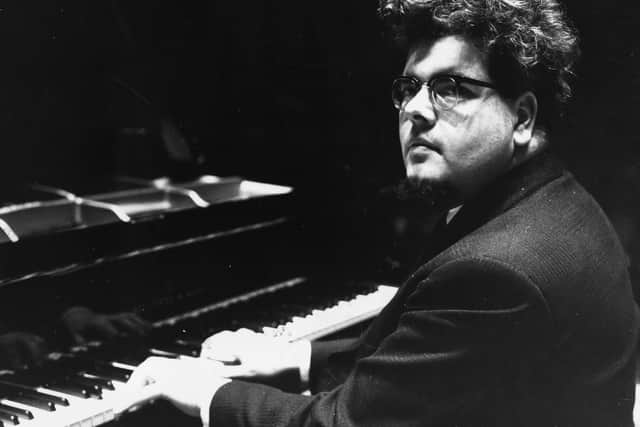

John Andrew Howard Ogdon was born at Auckland House on January 27, 1937 – the same birthday as Mozart.
His family included his mother Dorothy, his father Howard, who was a teacher of English at Queen Elizabeth’s School, Mansfield, sisters Pippa and Ruth, and brother Karl.
From the age of about four, John started taking lessons with Mansfield piano teacher Nellie Houseley. She recalled in a 1974 Chad interview, that he had two lessons a week and always stayed for an hour afterwards reading music.
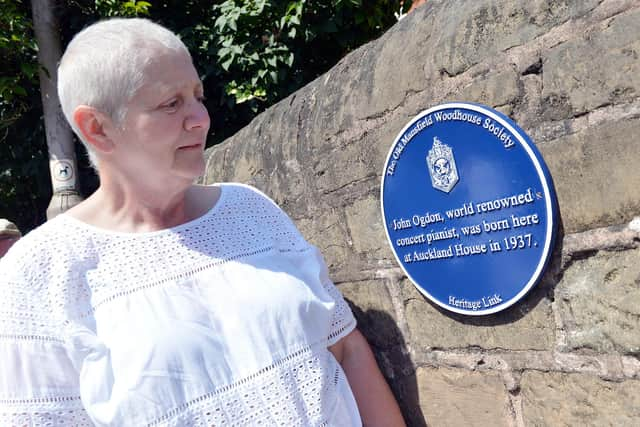

Advertisement
Hide AdAdvertisement
Hide AdWhen he was five, he caught meningitis and was treated at Nottingham General Hospital.
He attended St Edmund’s School, Mansfield Woodhouse, and many local people will remember him from their schooldays there in the early 1940s, where he gave recitals to his friends.
John was only eight years old when his musical talents were noticed and he had an interview with Sir Stanley Marchant, the then principal of the Royal Academy of Music in London.
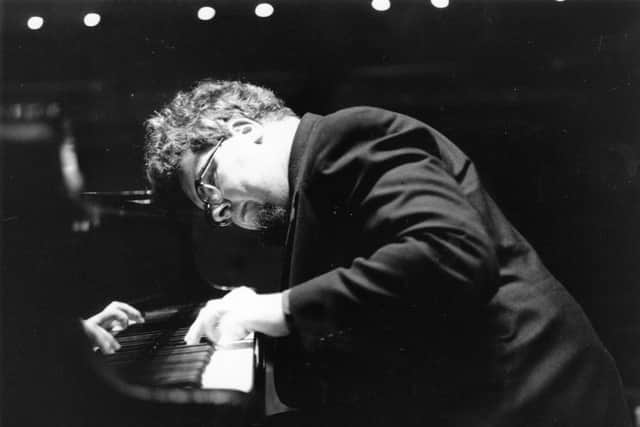

Meanwhile John and his family had moved to the Whitefield area of Manchester, near where his father had accepted a teaching post at Prestwich Grammar School, and John was placed with famous pianist Iso Elinson.
Advertisement
Hide AdAdvertisement
Hide AdHe was offered a free scholarship at the Royal Manchester College of Music (Now the Royal Northern College of Music). At that time, he was the youngest student to be admitted, but then sadly had to surrender the scholarship due to ill health.
Another opportunity came his way and for about four years from 1953 to 1957, he was able to take up a scholarship there.
He made his sensational London debut at the 1958 Proms, playing the Busoni Concerto, regarded as one of the piano repertoire’s most awkward pieces. His recital debut in 1959 at Wigmore Hall also excited attention as he played much of Liszt’s music.
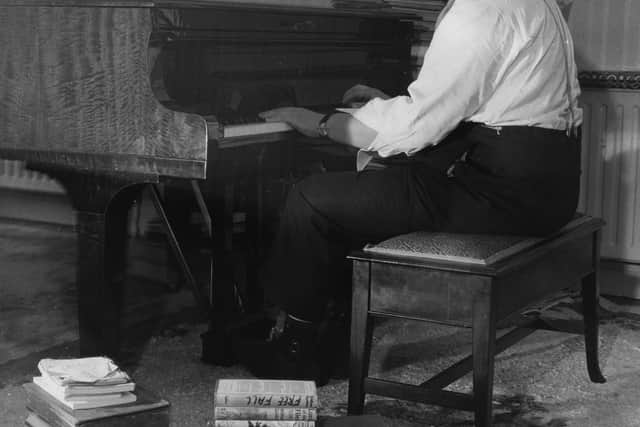

Pianist Brenda Lucas became his wife in 1960 and they recorded a number of piano duets together. They had met when both studying at Manchester. (She later wrote his biography called Virtuoso).
Advertisement
Hide AdAdvertisement
Hide AdIn 1961 he entered the London Liszt Competition and took first prize. In 1962 he won the International Tchaikovsky Competition in Moscow, jointly with Vladimir Ashkenazy, which consolidated his growing international reputation.
A man with an astonishing memory, he went on to compose more than 200 pieces, mainly for the piano and championed the music of Tchaikovsky and Rachmaninov and of British composers.
Dogged by ill-health from being a small boy, in 1973 it was reported that he had suffered a breakdown and spent some time in the Maudsley Hospital, London.
He went on to teach music at Bloomington University, Indiana, USA, between 1976 and 1980. In the 1980s he staged a comeback and played at the opening of the Royal Concert Hall, Nottingham, in 1983.
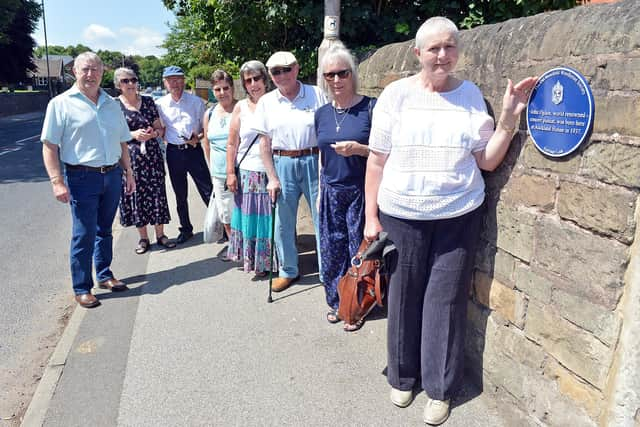

Advertisement
Hide AdAdvertisement
Hide AdHe had made a partial recovery and although his health was still poor, he continued his career and showed that his technical skills and interpretive inspiration had hardly been affected.
In August , 1989, he died at Charing Cross Hospital, having been admitted the previous day suffering from broncho-pneumonia, aged 52.
Tributes poured in and his friend Sheila Haslam, speaking on behalf of the Cantamus Choir said:
“His influence in the music world was so great. Mansfield was so proud of his reputation and the way in which he fought his illness. He gave so much encouragement to young people in this area. We feel the loss deeply.
Advertisement
Hide AdAdvertisement
Hide AdHis appearances with Cantamus and his association with Mansfield Choral Society are times that we will treasure.”
On May 13, 1990, his widow, Brenda Lucas, performed Christus, in the John Ogdon Memorial Concert, at Mansfield’s Civic Theatre. He himself had given a performance of Christus, there in 1983 to a capacity audience.”
Mansfield District Council established a scholarship in his memory. His life-long friend, Huthwaite-born Marjory Wood, wrote the book The Young John Ogdon, to commemorate the 10th anniversary of his death in 1999.
A man who did much to keep the memory of John Ogdon alive, was the late Jack Wakefield.
Advertisement
Hide AdAdvertisement
Hide AdHe helped to commission a permanent tribute to John, a bust, at a cost of about £2,500. Donations poured in and sculptress Joy Bently cast the bust in bronze. It took pride of place in the foyer of the Palace Theatre, Mansfield, in early 2002 to mark what would have been the master musician’s 65th birthday.
Campaigner Mr Wakefield said of John at the time: “His personality completely changed when he played. In his private life he was very gentle, but at the piano he was a titan. He seemed to be transformed by the music.”
Music lovers attended a Valentine’s Day concert in 2003 at Queen Elizabeth’s School, Mansfield, to honour this musical giant and featured Concordia Choir under the direction of John’s life-long friend David Chamberlain. Also performing was Daniela Hursthouse, the 1998 winner of the John Ogdon Scholarship Award.
Virtuoso British pianist Sam Haywood played the John Ogdon piano for the very first time after its installation at the Palace Theatre, Mansfield, in 2004.
Advertisement
Hide AdAdvertisement
Hide AdThe Yamaha C7 Grand Piano cost £13,000 and was raised by donations from local people. Mansfield Palace Theatre’s Music Society had launched the fundraising project with local music teacher Hilary Ward.